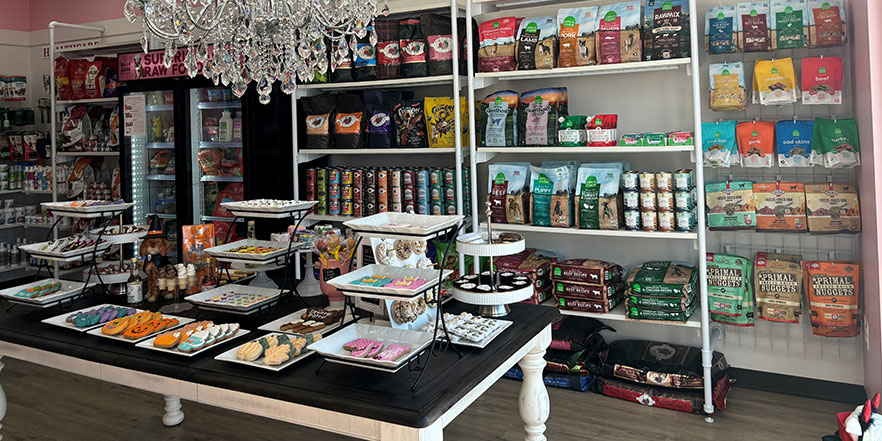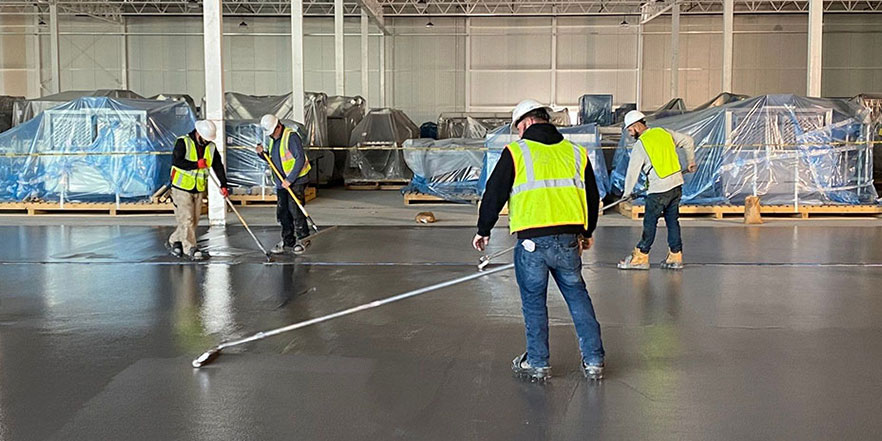SBA Loan FAQ and Answers
Securing funding for your business can be challenging, but an SBA loan could be the solution you’re looking for. Did you know that in 2024 alone, the SBA’s total capital impact amounted to $56 billion, which includes all financing across its core programs. In 2024, the SBA supported 103,000 financings to small businesses, marking the highest level across its core programs since 2008, helping them grow and thrive. These loans stand out for offering competitive interest rates, extended repayment terms and lower down payment requirements compared to conventional loans.
To simplify the process, we compiled a comprehensive SBA loan FAQ guide, answering more than 25 of the most pressing questions business owners like you have about SBA loans. From eligibility and application steps to differences between 7(a) loans and 504 loans, we cover it all with insights from financial experts. Here’s what you’ll find in this guide:
- Compelling stats on how SBA loans empower small businesses
- A dedicated section covering popular 7(a) loans, perfect for working capital and expansion
- Answers to critical questions about 504 loans, ideal for real estate or heavy equipment purchases
What are the SBA loan rates?
SBA loan rates vary depending on the specific loan program, such as the 7(a) or 504 loan, and whether the rate is fixed or variable. What are the SBA loan rates typically based on? They’re generally tied to benchmark rates like the Prime Rate or Treasury yields, with an additional percentage added by the lender. The exact rate you receive depends on factors like loan amount, repayment term, and your credit profile.
What are the terms of SBA loans?
The terms of SBA loans vary based on the type of loan and use of funds, but they are generally more favorable than conventional financing. What are the terms of SBA loans typically? Repayment periods can range up to 10 years for working capital, 10 years for equipment, and up to 25 years for real estate. SBA loans also often offer lower down payments and competitive interest rates, helping small businesses manage cash flow more effectively.
How to find an SBA lender?
To find an SBA lender, start by looking for banks, credit unions, or non-bank lenders that specialize in SBA loans and have experience working with small businesses. How to find an SBA lender also involves identifying institutions designated as SBA Preferred Lenders, as they can process applications more efficiently. You can also get recommendations from local business networks, accountants, or SBA district offices familiar with active and reputable lenders in your area.
Where can I find an SBA loan checklist?
You can find an SBA loan checklist on the official SBA website or through your SBA lender. The SBA loan checklist usually includes documents like your business plan, personal and business tax returns, personal financial statement, business financial statements (P&L, balance sheet), debt schedule, ownership structure, and legal documents like purchase agreements, licenses and leases. It’s a good idea to check with your lender, as the SBA loan checklist can vary slightly depending on the type of SBA loan you’re applying for.
Are there special deals for SBA loans for veterans?
Veterans can access a SBA loan for veterans through the SBA’s program like the Veteran Advantage, which offers fee reductions on SBA 7(a) loans for veterans. Start by contacting your local SBA district office or Small Business Development Center (SBDC). Some SBA lenders, like First Bank of the Lake, specialize in working with veteran-owned businesses and can guide you through the process as well as offer reduced fees and interest rates.
How can I get an SBA restaurant loan?
To get an SBA restaurant loan, start by preparing your business plan, financial projections, and documentation such as tax returns and a personal financial statement. Restaurants can qualify for SBA 7(a) or 504 loans, depending on whether you’re looking for working capital or funding to buy/renovate a location. Lenders will evaluate your credit, experience, collateral, and the viability of your business plan for your SBA restaurant loan. Franchises may need SBA-approved status. The stronger your documentation and experience, the better your chances of approval.
Can I get an SBA loan for commercial real estate?
Yes, SBA loans can be used for owner occupied commercial real estate purchases where the borrower occupies at least 51% of the property, construction, or renovations. The most common option SBA loan for commercial real estate is the SBA 504 loan, which is designed specifically for real estate and large equipment. Another option is the SBA 7(a) loan, which offers more flexibility and can be used for real estate, working capital, or refinancing debt.
Can I get an SBA loan for startups?
Startups can qualify for an SBA Loan. The SBA 7(a) loan program allows flexible funds usage and is ideal for an SBA start-up loan. To apply for an SBA start-up loan, you’ll need a comprehensive business plan, detailed financial projections, a solid credit score, industry experience, and collateral. It’s best to work with an SBA-preferred lender, like First Bank of the Lake, who understands startup needs.
What is the difference between a 7a and 504 loan?
The main difference between a 7(a) and 504 loan lies in how the funds are used and how the loan is structured. A 7(a) loan is more flexible and can be used for working capital, business acquisitions, equipment, or real estate, while a 504 loan is specifically used for purchasing fixed assets like commercial property or large equipment. Additionally, 7(a) loans are issued by a single lender, whereas 504 loans involve both a private lender and a Certified Development Company (CDC).
SBA 7a Loan FAQ and Answers
What is 7a loan?
A 7(a) loan is the SBA’s most popular loan program, designed to help small businesses access funding for a wide range of needs like working capital, equipment, business acquisition, or real estate. What is a 7(a) loan used for? It’s a flexible financing option that offers longer repayment terms and lower down payments than many conventional loans, with a portion of the loan guaranteed by the SBA to reduce lender risk.
How can I find 7a lenders?
You can find SBA 7(a) lenders through the SBA’s Lender Match tool. This free online tool connects small business owners with SBA 7(a) loan approved lenders based on your business needs. Your local SBA district office can refer you to trusted lenders in your area. When looking for a SBA 7(a) lender, consider a SBA 7(a) lender that is designated as SBA Preferred Lenders (PLP), like First Bank of the Lake, as they can approve loans more quickly.
Who are the top 7a loan lenders?
The top SBA 7(a) loan lenders are ranked based on the number of loans approved and the total dollar volume of those loans in a given fiscal year. The SBA regularly publishes performance data showing which lenders are most active. The top SBA 7(a) lender rankings can vary year by year depending on market conditions, lender participation, and the industries being served. The top SBA 7(a) loan lender rankings reflect a mix of traditional banks, credit unions, and non-bank lenders, including those with SBA Preferred Lender status, which allows for faster processing. First Bank of the Lake is one of the top SBA lenders in the U.S.
Can I get an SBA 7A loan for real estate?
Yes, SBA 7(a) loans can be used to purchase, renovate, or refinance commercial real estate. To get an SBA 7(a) loan for real estate, the operating business must occupy at least 51% of the property. An SBA 7(a) loan for real estate offers flexible terms and loan usages for businesses looking to purchase real estate.
What are the Small Business Administration 7a loan fees?
SBA 7(a) loan fees are typically based on the loan amount and term. Fees for SBA 7(a) loans over $150,000 with terms longer than 12 months, the SBA charges a guaranty fee that ranges between 2% to 3.75% of the guaranteed portion. Smaller loans often have lower SBA 7(a) fees, and some SBA 7(a) fees for loans under $150,000 may have no guaranty fee at all. Loans with terms of 12 months or less have much lower fees, usually around 0.25%. Most lenders include these fees in the total loan amount, so you won’t have to pay them out of pocket upfront.
What are the 7A loan interest rates?
SBA 7(a) loan interest rates are typically variable and tied to the Wall Street Journal Prime Rate, plus a lender’s markup also referred to as spread. When asking “what are the 7(a) loan interest rates,” it’s important to understand that the SBA sets maximum allowable rates to protect borrowers, but the final rate you receive depends on your loan size, repayment term, and creditworthiness. Because 7(a) loans are partially guaranteed by the SBA, lenders can offer more favorable terms than many conventional loans. So, if you’re researching what the 7(a) loan interest rates are for your business, the most accurate information will come directly from an SBA-preferred lender who can assess your specific situation.
How can I find SBA 7a loan lenders?
You can find SBA 7(a) loan lenders by using the SBA’s Lender Match tool, which connects you with approved lenders based on your business needs. Another way to find an SBA Lender is to search for an SBA Preferred Lender, these are banks and financial institutions with authority to make final credit decisions, allowing for a faster loan process. You can also contact your local SBA district office for a list of active lenders in your area or ask for recommendations from other business owners or financial advisors. First Bank of the Lake is one of the top SBA lenders in the U.S.
How do I apply for an SBA Loan?
To apply for an SBA loan, you’ll need to gather key documents such as your business plan, financial statements, tax returns, and a personal financial statement. How to apply for an SBA loan also involves choosing the right SBA program—like the 7(a) or 504 loan—and working with an SBA-approved lender who can guide you through the application process. The lender submits your application to the SBA for review and approval, and if approved, finalizes the loan terms with you.
Can I get more details on using a Small Business Administration 7a loan?
A Small Business Administration 7(a) loan is a type of government-backed loan that helps small businesses access funding through approved lenders. These loans can be used for many purposes, including working capital, purchasing equipment, acquiring a business, or refinancing debt. The SBA guarantees a portion of the loan, reducing risk for lenders and making it easier for small businesses to qualify. A Small Business Administration 7(a) loan is the most commonly used SBA loan program due to its flexibility and broad eligibility.
SBA 504 Loan FAQ and Answers
What is an SBA 504 loan?
The 504 SBA loan is designed for purchasing fixed assets like real estate or large fixed equipment. Typically, the structure involves 50% from a bank, 40% from a Certified Development Companies (CDC) backed by the SBA, and 10% from the borrower. An SBA 504 loan is ideal for businesses looking to purchase or expand their business’s commercial property or finance large equipment. It offers competitive, fixed interest rates and longer repayment terms up to 25 years.
What are the typical SBA loan rates for a 504 loan?
SBA 504 loan rates are typically fixed and competitive, with terms of 10 to 25 years. SBA 504 loan rates are dependent on market conditions and loan terms, with each lender setting their own SBA 504 loan rates within the SBA guidelines. An SBA 504 loan is made up of two parts: the bank portion (up to 50%), the CDC/SBA portion (up to 40%) and the equity injection (starting at 10%). The bank rate is negotiated, usually fixed or variable, while the SBA portion has a fixed rate set by the SBA and tied to Treasury bonds.
How much are the SBA 504 loan fees?
The SBA 504 loan fees typically range between 2% and 3% of the loan amount and are usually financed into the loan. When looking at how much the SBA 504 loan fees are, it’s important to understand that these include an SBA guaranty fee, servicing fees, and other administrative costs. The exact amount may vary based on the project size and lender, but all fees are disclosed upfront during the application process.
Is there an SBA 504 loan prepayment penalty?
Yes, there is an SBA 504 loan prepayment penalty. The SBA 504 loan prepayment penalty applies to the CDC portion of the loan and typically lasts for 10 years, with the amount decreasing over time. The bank portion of the loan may also have its own prepayment penalty, set individually by the lender. When considering an SBA 504 loan, it’s important to evaluate how prepayment penalties could affect your plans—especially if you anticipate paying off the loan early or refinancing in a changing interest rate environment.
How does the SBA 504 loan program work?
The 504 loan program is a financing option offered by the SBA to help small businesses purchase fixed assets like commercial real estate or large equipment. What is a 504 loan program? It’s a structured loan with two lenders: a bank funds 50% of the project, a Certified Development Company (CDC) finances 40%, and the borrower contributes 10%. The 504 loan program is designed to support long-term investments that promote business growth and job creation, offering fixed interest rates and longer repayment terms.
What are SBA 504 loans ideal for?
SBA 504 loans are long-term financing options backed by the Small Business Administration to help small businesses purchase or improve fixed assets like commercial property, land, or equipment. What are SBA 504 loans typically used for? They are ideal for business expansion, offering fixed interest rates and repayment terms up to 25 years. The structure involves a private lender, a Certified Development Company (CDC), and a borrower contribution, making it a powerful tool for stable, growth-oriented investment.
What are the current SBA 504 loan rates?
The current SBA 504 loan rates vary depending on the structure of the loan, which includes two parts: a portion from a Certified Development Company (CDC) and a portion from a private lender. What are the current SBA 504 loan rates made up of? The CDC portion typically has a below-market, fixed interest rate set monthly based on U.S. Treasury rates, while the lender portion may have a fixed or variable rate determined by the bank. Because of this two-part structure, the overall rate a borrower pays will depend on the terms negotiated with the lender and the current CDC rate at the time of funding.
How to find the best SBA 504 loan program?
An SBA 504 loan is a government-backed loan program that helps small businesses finance major fixed assets like real estate or equipment. What is an SBA 504 loan designed for? It’s meant to support business growth through long-term, fixed-rate financing. The loan is typically structured in three parts: 50% from a bank, 40% from a Certified Development Company (CDC), and 10% from the borrower.
What are the SBA 504 loan interest rates?
SBA 504 loan interest rates are split between two components: the CDC portion and the lender portion. SBA 504 loan interest rates for the CDC portion are typically below market and fixed, set monthly based on Treasury bond rates. The lender portion may have either a fixed or variable rate, depending on the terms negotiated with the bank. Because SBA 504 loan interest rates come from two sources, the overall cost will vary depending on the lender, market conditions, and the structure of your loan.



